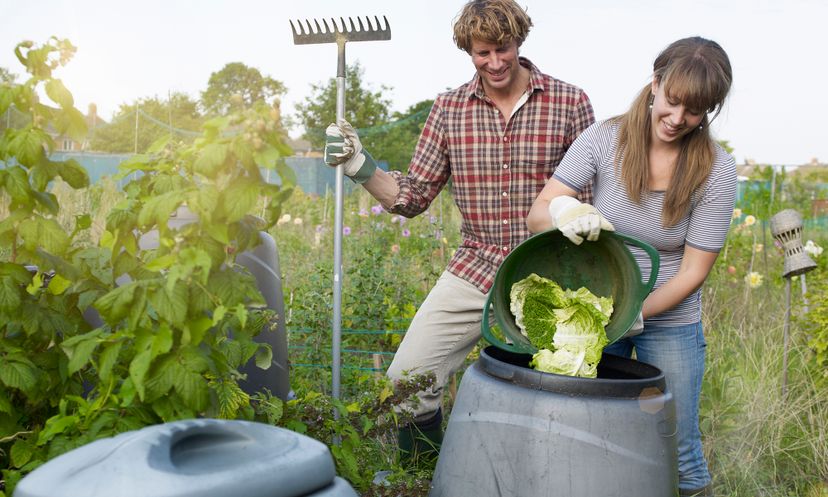
About This Quiz
Turn trash into cash, or at least into fertilizer that you can use in your garden. Help the environment by composting your organic waste. Take this quiz to see how much you know about composting.Each year, Americans create about 210 million tons of trash.
About 57 percent of the garbage goes to municipal landfills.
The composting process breaks down organic material into usable and valuable finished compost or humus.
Advertisement
Soil is required for composting as a source of microorganisms.
Newsprint is organic waste, because it is made from trees.
Air is needed for composting as a source of oxygen.
Advertisement
The microorganisms eat the organic waste and break it down.
They need water to live.
Regular turning and watering of the composting material speeds up the process.
Advertisement
To aid decomposition, break up the large pieces of organic waste.
Bacteria, fungi and lots more feed on the composting material.
The compost heap may stink.
Advertisement
Your HOA may have specific guidelines for the location of a compost pile on your property.
Too much wind may dry out the material or cause it to scatter.
A compost structure may be anything from a heap of material to a concrete block structure.
Advertisement
They may cause a foul odor, but may be composted.
Do not compost any type of human or animal waste.
These waste products may carry diseases or parasites.
Advertisement
The ashes may be toxic to the microorganisms necessary for composting.